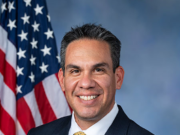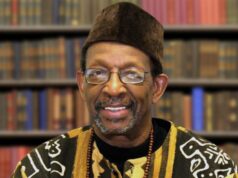By Joe W. Bowers Jr. | California Black Media
President Donald Trump’s latest executive order requires colleges receiving federal aid to submit detailed admissions data — including race, GPA, test scores, and acceptance rates — to prove they aren’t using race, directly or indirectly, in admissions decisions. Noncompliance may trigger federal enforcement actions, including corrective plans, loss of federal student aid eligibility, and possible referral to the Department of Justice.
The White House claims that this order supports fairness and transparency, but critics warn it’s a veiled attack on racial diversity in higher education. Yale Law professor Justin Driver called the new approach “catastrophic” and said it would likely be used to intimidate universities into lowering Black and Latino enrollment.
Trump’s order follows the 2023 U.S. Supreme Court decision ending race-conscious admissions but allowing students to write about how race affected their lives. The administration is now targeting perceived “racial proxies,” including personal essays, diversity statements, and ZIP-code or first-gen indicators, tools that many colleges legally use in building a diverse student body and ensuring that underrepresented voices are part of campus life.
What This Means for Black Students in California
In 1996, California banned affirmative action with Proposition 209. The result was immediate. In the first year at UCLA, Black student admissions fell by 36%, and Latino admissions by 21%, despite no significant drop in applicants.
Today, the long-term effects remain visible. According to UC system data, Black undergraduates made up just 4.7% of all students in fall 2024 — well below California’s Black population share of 5.6%.
Despite these constraints, UC enrolled its most diverse freshman class ever for fall 2024: African American enrollment increased 4.6% systemwide, Latino enrollment rose 3.1%, and American Indian enrollment was up about 12.9%.
After the Supreme Court ruling, UC President Michael V. Drake reaffirmed UC’s commitment to diversity: “Student diversity remains a top priority for the University of California — one that we will continue to pursue with every tool available to us.”
Merit — or Misdirection?
Trump officials say the order defends “merit-based” admissions. Secretary of Education Linda McMahon said students should be chosen based on “achievement and ability — not race or ideology.”
The facts show the policy defines merit in a narrow, one-dimensional way – focusing on test scores and grades – while ignoring other admissions factors like legacy status and donor preferences that disproportionately benefit wealthy White students.
Aaron Ament, president of the National Student Legal Defense Network, said, “If this were truly about fairness, they’d be asking for data on legacy admissions and donor influence. Instead, they’re going after students who have overcome the odds.”
Equity advocates warn that misuse of data could chill lawful, race-neutral efforts. Education Trust’s Wil Del Pilar cautioned, “The danger lies in how this administration will weaponize the data — based on their fundamental misunderstanding of the [Supreme Court] ruling — to target universities for doing the right thing. The availability of admissions data should be used to break down systemic barriers, not to build new ones.”
The administration has already pressured universities, reaching agreements with Columbia and Brown to provide data and accept audits, and intensifying scrutiny of UC campuses including UCLA, with federal funding leverage.
Real Impacts on Real Students
High school seniors report anxiety and confusion about how to present identity in essays.
Seventeen-year-old Hillary Amofa told the Associated Press(AP) she hesitated to write about her background: “There’s just a lot of pressure in general … being a first-generation student, being Black, there’s already a lot of pressure for us to prove that we belong at these institutions.”
Counselors interviewed by the AP and other media outlets describe similar concerns, saying students are unsure whether acknowledging race in essays — still permitted under the law– could be used against them.
Bottom Line for Black Californians
While the Trump administration says its order promotes transparency, it’s clear the order could undermine the legitimacy of Black and Brown students in higher education by casting diversity as something suspect. In California, a state that has operated without affirmative action for decades, UC’s race-neutral strategies could face new federal challenges — despite being lawful.
Bottom line: For Black Californians, this is more than an executive order — it’s a message. If you succeed, you’ll be scrutinized. If your story includes race, it might be second-guessed or disqualified. The result is a climate of fear and self-censorship, intensified by federal efforts to collect data, where students feel they must hide who they are just to compete.
About the Author
Joe W. Bowers Jr. is a contributing editor to California Black Media. He is a graduate of Stanford University.


































